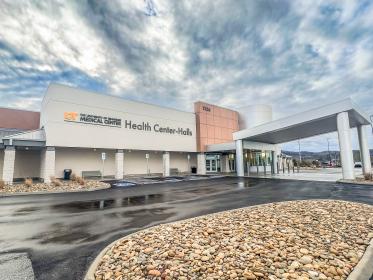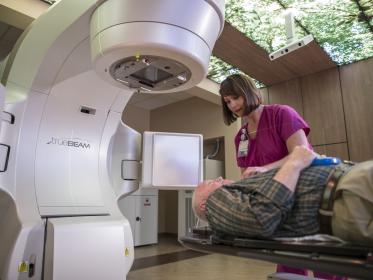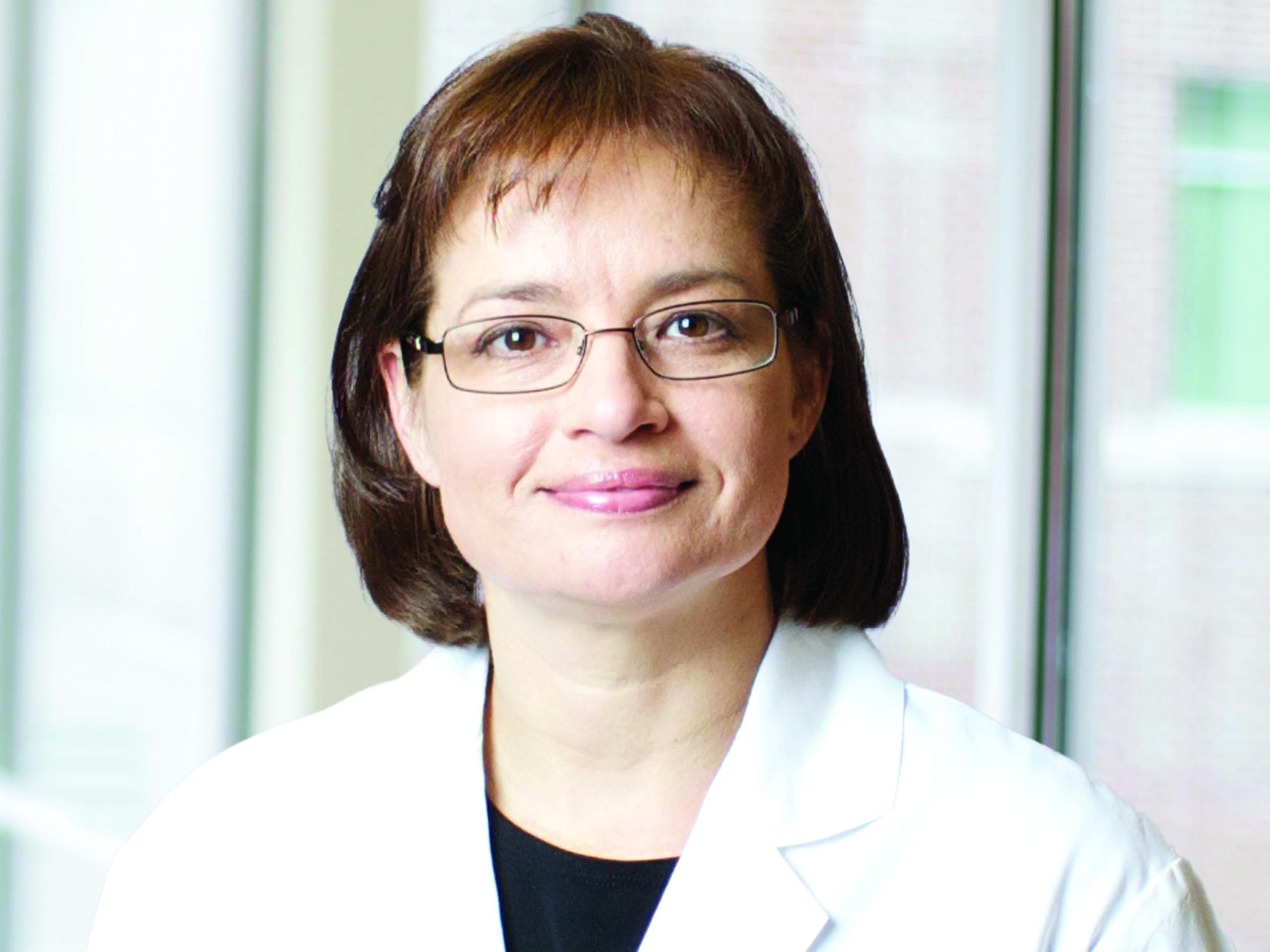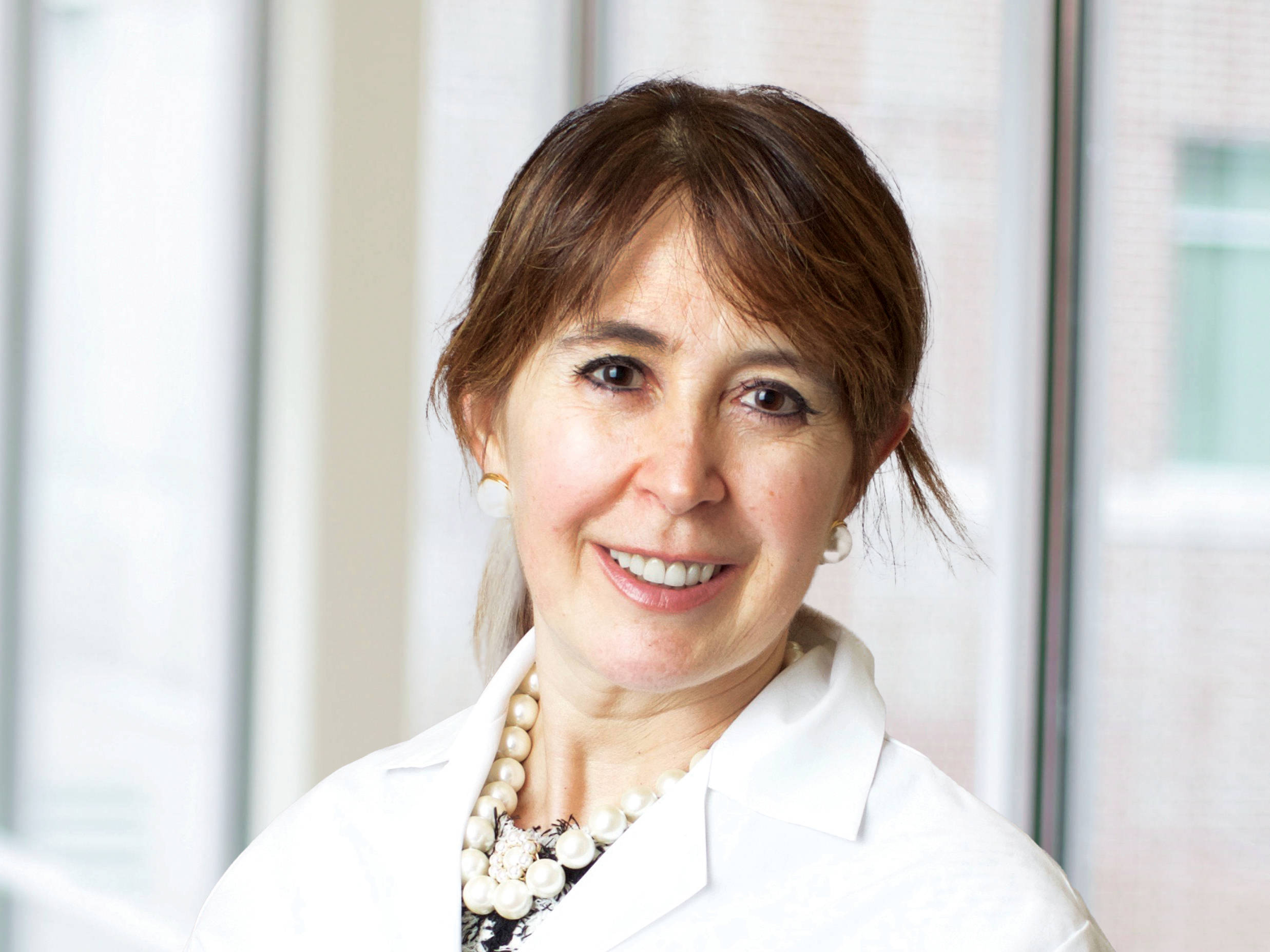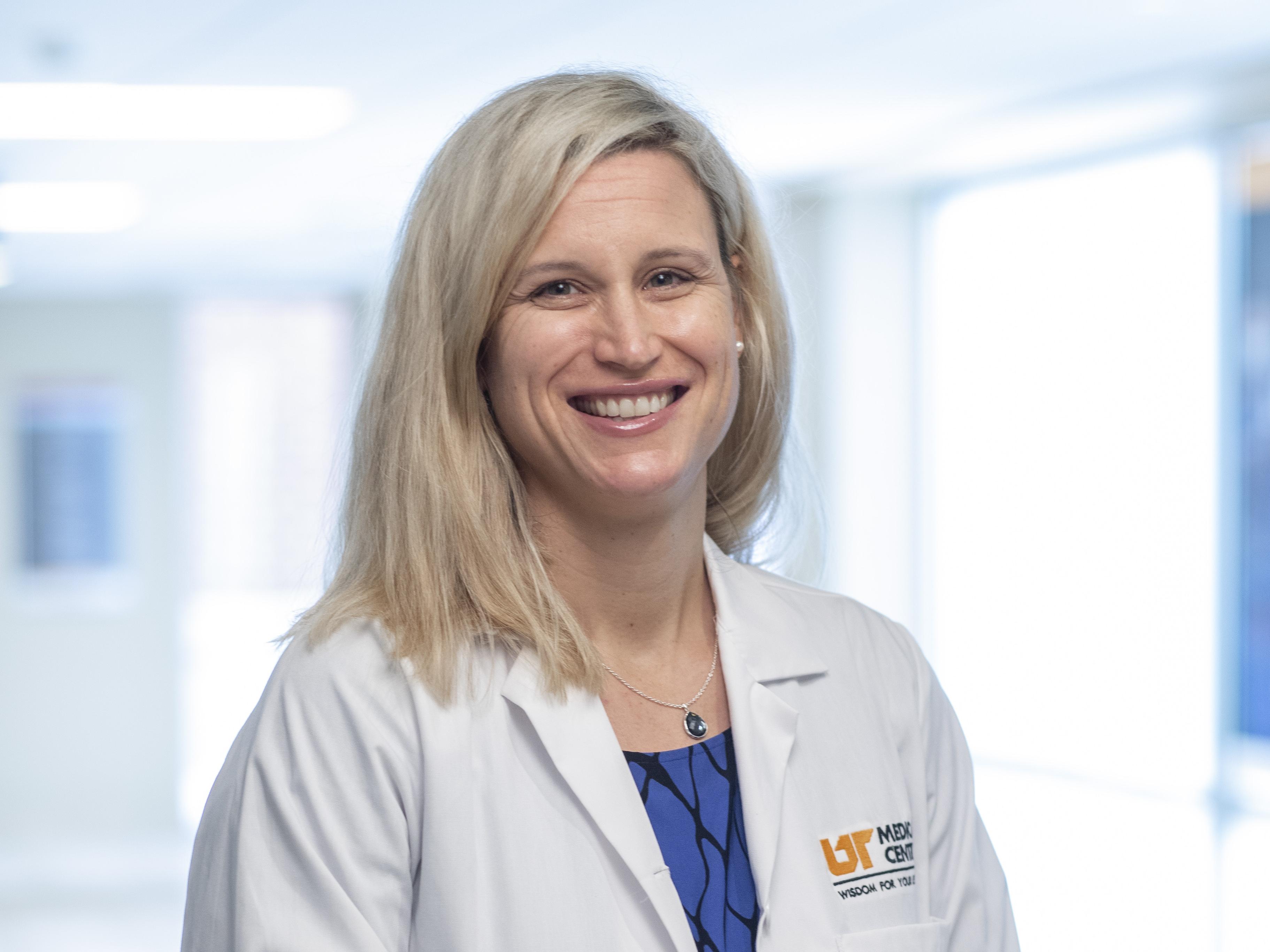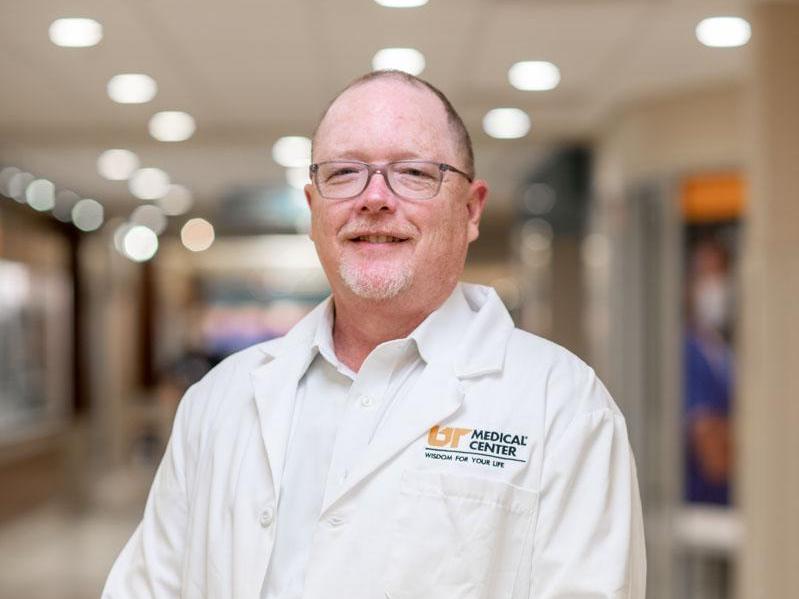Overview
Please call 865-305-6278 for more information.
The Melanoma and Soft Tissue Tumor (MASTT) Service at The University of Tennessee Medical Center Cancer Institute specializes in the treatment of skin cancers and soft tissue tumors such as:
- Basal Cell Carcinoma
- Desmoid Tumors
- Melanoma
- Merkel Cell Carcinoma
- Sarcoma
- Squamous Cell Carcinoma
We offer comprehensive treatment of both benign and malignant soft tissue tumors (sarcomas).
There are two main types of skin cancer: Melanoma and non-melanomas. The most common type of skin cancer is non-melanoma, which rarely spreads and is less likely to cause death. Melanoma is the most serious of skin cancers with almost 60,000 new diagnoses each year and annually causing almost 8,000 deaths.
Melanoma is much more serious than non-melanomas and has the ability to spread. According to the American Cancer Society, most melanomas are curable in the early stages, so self-examinations and physician visits are key to detecting skin cancer before it advances and spreads.
“The key to successful treatment of cancers is early diagnosis.” says James M. Lewis, MD, Director of the Melanoma and Soft Tissue Tumor Service (MASTT) Program. Members of the MASTT program are broadly trained in oncology and have expertise in the treatment of skin cancers and sarcomas.
Early detection and treatment of skin cancers provide an excellent opportunity for a cure. The MASTT program promotes the prevention and early detection of skin cancers through community outreach, which provides education and screening for all ages, community members, and health care providers.
Your Care at the Cancer Institute
The Cancer Institute at The University of Tennessee Medical Center offers the broadest spectrum of cancer specialists and services to care for our patients with skin cancer.
Our team provides patients with melanoma and other skin cancers access to all of their cancer care including surgical consultations, radiation therapy, genetic counseling/testing, chemotherapy infusions, and supportive/integrative health services.
The Melanoma and Soft Tissue Tumor (MASTT) Service at The University of Tennessee Medical Center Cancer Institute specializes in the treatment of skin cancers and soft tissue tumors. We offer a highly trained team of oncologists trained at some of the top institutions in the country, bringing the best care to patients in our region. Our center is designed to assist and support patients through their cancer journey so they can choose the most appropriate treatment plan based on their particular diagnosis and needs.
Patients are reviewed at multidisciplinary conferences where surgeons, medical oncologists, surgical oncologists, radiation oncologists, radiologists, pathologists, genetic counselors, nurses and clinical trials coordinators gather to determine the best individualized treatment plan for each patient. This level of coordination ensures that patients are receiving the highest level of care, offering the best outcomes and quality of life. Our comprehensive care teams also include integrative healthcare, a registered dietician, financial counselors, pastoral care, palliative care, and a social worker.
Risk Factors
Melanoma is not as common as other types of skin cancer. However, the rate of melanoma is steadily increasing. The risk of developing melanoma increases with age, but it is also frequently seen in young people.
You are more likely to develop melanoma if you:
- Have fair skin, blue or green eyes, or red or blond hair
- Live in sunny climates or at high altitudes
- Spent a lot of time in high levels of strong sunlight, because of a job or other activities
- Have had one or more blistering sunburns during childhood
- Use tanning devices
Other risk factors include:
- Close relatives with a history of melanoma
- Certain types of moles (atypical or dysplastic) or multiple birthmarks
- Weakened immune system due to disease or medication
Diagnosing Skin Cancers
The best way, to detect melanoma is by continually examining your skin, especially moles. Melanoma may be found in several places including the back, buttocks, legs, scalp, neck, behind the ear, soles of feet, palms, inside the mouth, genitalia and underneath nails.
According to the American Academy of Dermatology (AAD), approximately 20 to 40 percent of melanomas develop from a mole. A mole, sore, lump, or growth on the skin can be a sign of melanoma or other skin cancer. A sore or growth that bleeds, or changes in skin coloring may also be a sign of skin cancer.
The ABCDE system can help you remember possible symptoms of melanoma:
- Asymmetry: One half of the abnormal area is different from the other half.
- Borders: The edges of the growth are irregular.
- Color: Color changes from one area to another, with shades of tan, brown, or black, and sometimes white, red, or blue. A mixture of colors may appear within one sore.
- Diameter: The spot is usually (but not always) larger than 6 mm in diameter — about the size of a pencil eraser.
- Evolution: The mole keeps changing appearance.
The key to successfully treating melanoma is recognizing symptoms early. You might not notice a small spot if you don’t look carefully. Have yearly body checks by a dermatologist, and examine your skin once a month. Use a hand mirror to check hard-to-see places. Call your doctor if you notice anything unusual.
If you have had skin cancer, you should have regular check-ups so that a doctor can examine your skin. You should also examine your skin once a month.
There are a number of test that may be ordered to diagnose skin cancer:
- Biopsy
- Computed tomography (CT) scan
- Magnetic resonance imaging (MRI) scan
- Positron emission tomography (PET) scan
Your Treatment Options
The decision on how to treat your melanoma is one that involves your active participation with understanding of your diagnosis, treatment options, and taking into consideration your lifestyle and values. For early-stage melanoma, treatment most commonly consists of surgery. Some cases, particularly those involving late-stage melanoma, may require further treatment. Your doctor may talk with you about several options, including:
- Clinical trials
- Chemotherapy
- Excisional surgery- Your healthcare provider removes the tumor along with the margin of normal skin to provide clean margins.
- Immunotherapy
- Isolated Limb Infusion
- Radiation therapy
- Sentinel Lymph Node Biopsy
- Skin Graft
- Targeted therapy– A newer form of treatment using drugs to more precisely attack cancer cells.
Dermatologists
At the University of Tennessee Medical Center, we partner with most dermatology groups in our community. Dermatologists specialize in the treatment of both malignant and non-malignant skin problems. Many also offer cosmetic services. If you are diagnosed with a cutaneous malignancy, physicians in the MASTT program will partner with your dermatologist to ensure safe follow-up and survivorship practices.
Clinical Trials
Cutting-edge treatment is offered to patients along with opportunities to participate in National Cancer Institute and pharmaceutical clinical trials. Clinical trials are research studies made available to patients that offer the newest treatments and test new ways to prevent, detect, diagnose and treat diseases.
For more information, visit Clinical Trials.
Comprehensive Lymphedema Service
MASTT patients have access to our Comprehensive Lymphedema Service, a multidisciplinary team of experts focused on the prevention, diagnosis and treatment of lymphedema through surgical and non-surgical treatment options. The team includes specialists from different fields and disciplines, including physical therapy, surgical oncology, plastic surgery, radiation oncology, medical oncology, gynecologic oncology, and vascular surgery.
Lymphedema is buildup of fluid, most often of the arm or leg. The most common cause of lymphedema is lymph node removal to treat cancer. Cancer-related lymphedema is most common among breast cancer patients; however, it can also develop after treatment of melanoma, sarcoma, gynecologic, genitourinary and head and neck cancer.
Diagnosing and treating lymphedema early can improve patients’ symptoms and quality of life. Click here to learn more about the Comprehensive Lymphedema Service.
Your Next Steps
If you or a loved one has been recently diagnosed with melanoma, we are here to help. One call to the nurse navigator at the Melanoma and Soft Tissue Tumor Service by the patient or the referring physician results in a prompt evaluation and the expediting of care for each patient with findings suspicious for cancer or a known cancer diagnosis.
Navigators are specially trained nurses who provide assistance to patients and families by coordinating care and providing information, education and support.
All specialists and procedures are available in one location on the campus of The University of Tennessee Medical Center.
Our Cancer Institute team is here for you in what can be a very stressful time. Please don’t hesitate to ask questions and request help when you need it. Our new patient section will provide you additional information about the Cancer Institute and everything you need to know to prepare for your first visit.
For more information on melanoma, visit our External Resources page for several trusted sites to enhance your research and understanding of your diagnoses.

